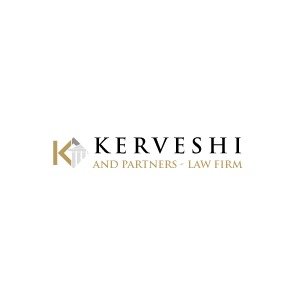Best Landlord & Tenant Lawyers in Kosovo
Share your needs with us, get contacted by law firms.
Free. Takes 2 min.
Free Guide to Hiring a Real Estate Lawyer
Or refine your search by selecting a city:
List of the best lawyers in Kosovo
About Landlord & Tenant Law in Kosovo
Landlord and tenant law in Kosovo is primarily governed by the Law on Obligational Relationships. This legal framework outlines the rights and obligations of landlords and tenants, guiding various aspects of residential and commercial lease agreements. The law aims to create a balanced relationship between landlords and tenants, safeguarding the rights of each party, and resolving disputes that may arise during tenancy.
Why You May Need a Lawyer
There are several situations where individuals or entities may require the expertise of a lawyer experienced in landlord and tenant law:
- Lease Agreement Drafting and Review: To ensure that agreements are legally binding and equitable.
- Dispute Resolution: Resolving conflicts over issues such as rent payments, property maintenance, or lease violations.
- Evictions: Legal guidance for both landlords and tenants during eviction proceedings.
- Deposit Disputes: Assistance with issues related to the return or withholding of security deposits.
- Property Damage: Navigating claims involving property damage responsibility.
- Illegal Subletting: Handling unauthorized subletting situations.
Local Laws Overview
Understanding the key aspects of local laws related to landlord and tenant obligations is crucial for both parties:
- Lease Agreements: Must be drafted in written form, detailing rental terms, duration, payment schedules, and obligations of both parties.
- Rent Control: There are no strict rent control policies, but changes in rent must be justified and notified in advance.
- Tenant Rights: Tenants are entitled to a habitable living environment and protection against unjust eviction.
- Landlord Responsibilities: Includes property maintenance and repair, ensuring the property is livable and safe.
- Notice Periods: Specified timelines for notices regarding lease termination or other changes.
Frequently Asked Questions
What should be included in a lease agreement?
A comprehensive lease agreement should include rent details, the lease duration, payment methods, tenant and landlord obligations, rules on subletting, and procedures for resolving disputes.
How is the security deposit managed?
The security deposit is typically used to cover any damages beyond normal wear and tear. The terms of its return should be clearly stated in the lease agreement.
Can a landlord increase rent during the lease term?
Generally, rent cannot be increased during the lease term unless the lease agreement includes provisions that allow for rent adjustments under specific conditions.
What are the legal grounds for eviction in Kosovo?
Legal grounds for eviction include non-payment of rent, significant lease violations, or illegal activities conducted on the premises.
How much notice must a tenant give to terminate a lease?
The notice period for terminating a lease is usually specified in the lease agreement, but a common practice is a minimum of 30 days' notice before the lease ends.
Can tenants make modifications to the rental property?
Tenants typically need written permission from the landlord before making any permanent modifications to the property.
What should a tenant do if the property needs urgent repairs?
Tenants should notify the landlord as soon as possible. If the landlord fails to make necessary repairs in a reasonable time, legal advice may be required to resolve the issue.
Are verbal lease agreements legally binding?
While verbal agreements can be considered binding, they are difficult to enforce legally. Written agreements are strongly recommended.
What can tenants do if they feel harassed by their landlord?
Tenants should document instances of harassment and seek legal advice to understand their rights and possibly file a complaint with appropriate authorities.
Is subletting allowed in Kosovo?
Subletting is typically allowed only if the lease agreement explicitly permits it. Tenants should obtain the landlord's consent to sublet the property legally.
Additional Resources
For additional support and information, individuals can refer to:
- Ministry of Justice of Kosovo: Provides information on legal frameworks.
- Kosovo Property Agency: An organization that addresses property rights and disputes.
- Legal Aid Services: Organizations offering free or subsidized legal assistance.
- Local NGOs: Such as the Center for Housing Rights and other advocacy groups supporting tenant rights.
Next Steps
If you need legal assistance with landlord and tenant issues in Kosovo, consider the following steps:
- Consult a Lawyer: Seek professional legal advice to understand your rights and obligations fully.
- Document Everything: Keep a record of all communications, payments, and any legal proceedings related to your tenancy.
- Explore Mediation: Consider mediation services as an alternative to resolve disputes amicably if both parties agree.
- Access Legal Aid: Contact a legal aid service if financial constraints limit your access to legal assistance.
By following these steps, you can navigate landlord and tenant issues more effectively and ensure that your rights are protected.
Lawzana helps you find the best lawyers and law firms in Kosovo through a curated and pre-screened list of qualified legal professionals. Our platform offers rankings and detailed profiles of attorneys and law firms, allowing you to compare based on practice areas, including Landlord & Tenant, experience, and client feedback.
Each profile includes a description of the firm's areas of practice, client reviews, team members and partners, year of establishment, spoken languages, office locations, contact information, social media presence, and any published articles or resources. Most firms on our platform speak English and are experienced in both local and international legal matters.
Get a quote from top-rated law firms in Kosovo — quickly, securely, and without unnecessary hassle.
Disclaimer:
The information provided on this page is for general informational purposes only and does not constitute legal advice. While we strive to ensure the accuracy and relevance of the content, legal information may change over time, and interpretations of the law can vary. You should always consult with a qualified legal professional for advice specific to your situation.
We disclaim all liability for actions taken or not taken based on the content of this page. If you believe any information is incorrect or outdated, please contact us, and we will review and update it where appropriate.
Browse landlord & tenant law firms by city in Kosovo
Refine your search by selecting a city.










